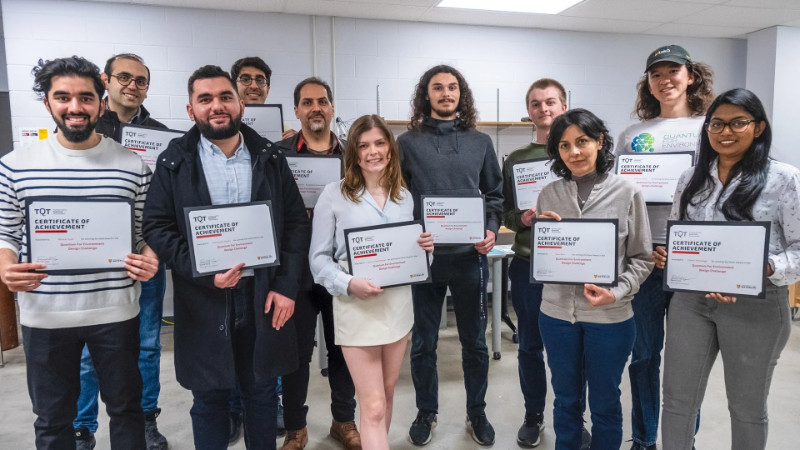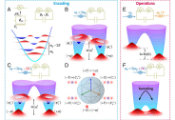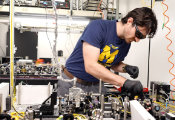Designing for a Sustainable Future Using Quantum Technologies
On April 18, Transformative Quantum Technologies (TQT) awarded six research teams and their design ideas for the Quantum for Environment (Q4Environment) Design Challenge, whose green-tech solutions address global environmental issues. Ideas included using quantum computing to improve medical devices, and sensors that can detect microplastics and toxic nanomaterials in our oceans.

TQT and the Institute for Quantum Computing (IQC) aims to engineer quantum processes to advance new solutions to societally important problems. Quantum theory is the ultimate law of nature. At its most fundamental level, nature is governed by quantum physics. So, it is natural to look for quantum solutions when efficiencies, precision and sensitivity beyond what the classical world allows are required.
However, a big inventive step is needed since we as classical beings experience the world through a classical lens. Creativity is essential to discover where a quantum device can have impact. To help mine for such impacts, TQT has run a series of focused design challenges, reaching out to the broad Waterloo community to solicit ideas for quantum-enabled solutions. The past design challenge explored Quantum for Health.
“There's a lot of applications when it comes to quantum. In general, I think there’s a very good opportunity for interdisciplinary research between quantum and energy research,” says Miswar Syed, a master’s student in the Faculty of Engineering, who participated in the Q4Environment Design Challenge with his research partner, Amirhossein Boreiri.




































